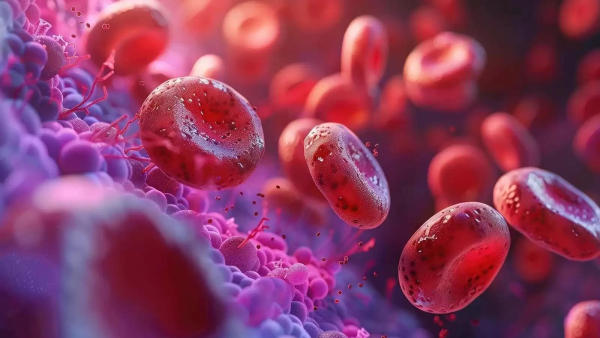
Our body is designed in such a way that neither too much nor too little of anything is good for it. This also applies to hemoglobin levels. While low hemoglobin can cause problems like fatigue, weakness, and anemia, too much hemoglobin can be dangerous. Maintaining proper hemoglobin levels is very important for overall health. If your hemoglobin level is consistently high, it is important to understand the potential risks associated with it.
What is hemoglobin?
Hemoglobin is a protein found in red blood cells that is responsible for carrying oxygen throughout the body. When hemoglobin levels become too high, it causes blood to thicken, which affects blood circulation and can lead to a number of health problems. For men, a hemoglobin level of more than 16.6 g/dL, and for women, a hemoglobin level of more than 15 g/dL is considered excessive.
Causes of increased haemoglobin
According to health experts, common causes of increased hemoglobin levels include living at high altitudes, long-term smoking, dehydration, and chronic obstructive pulmonary disease (COPD), which limits oxygen in the body. In more severe cases, a rare bone marrow disorder called polycythemia vera may be responsible, where the body produces too many red blood cells. Other conditions such as heart disease, cancer, and certain blood disorders can also increase the risk of high hemoglobin concentrations.
Risks of High Hemoglobin
Blood clots: High hemoglobin can increase the risk of blood clots, which can lead to serious conditions such as heart attack, stroke, or deep vein thrombosis.
High blood pressure: Excessive hemoglobin can thicken the blood, leading to high blood pressure.
Fatigue and dizziness: High hemoglobin levels can also cause symptoms such as fatigue and dizziness due to poor blood circulation.